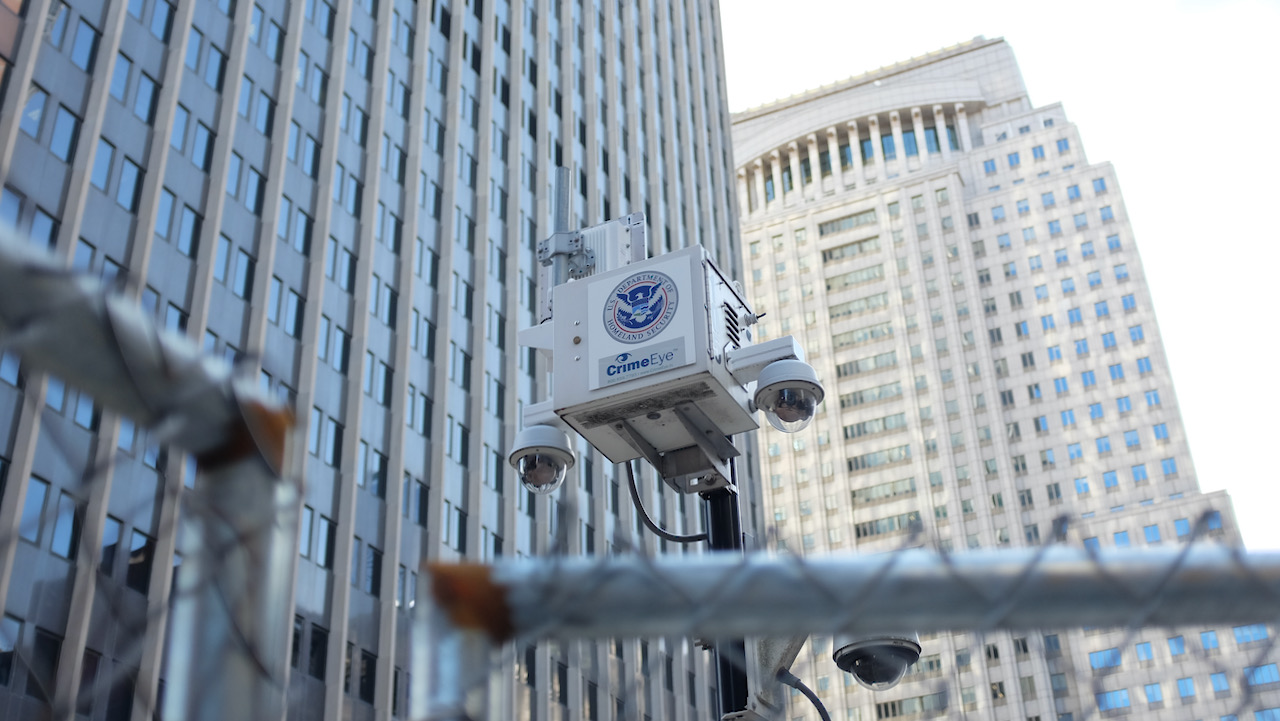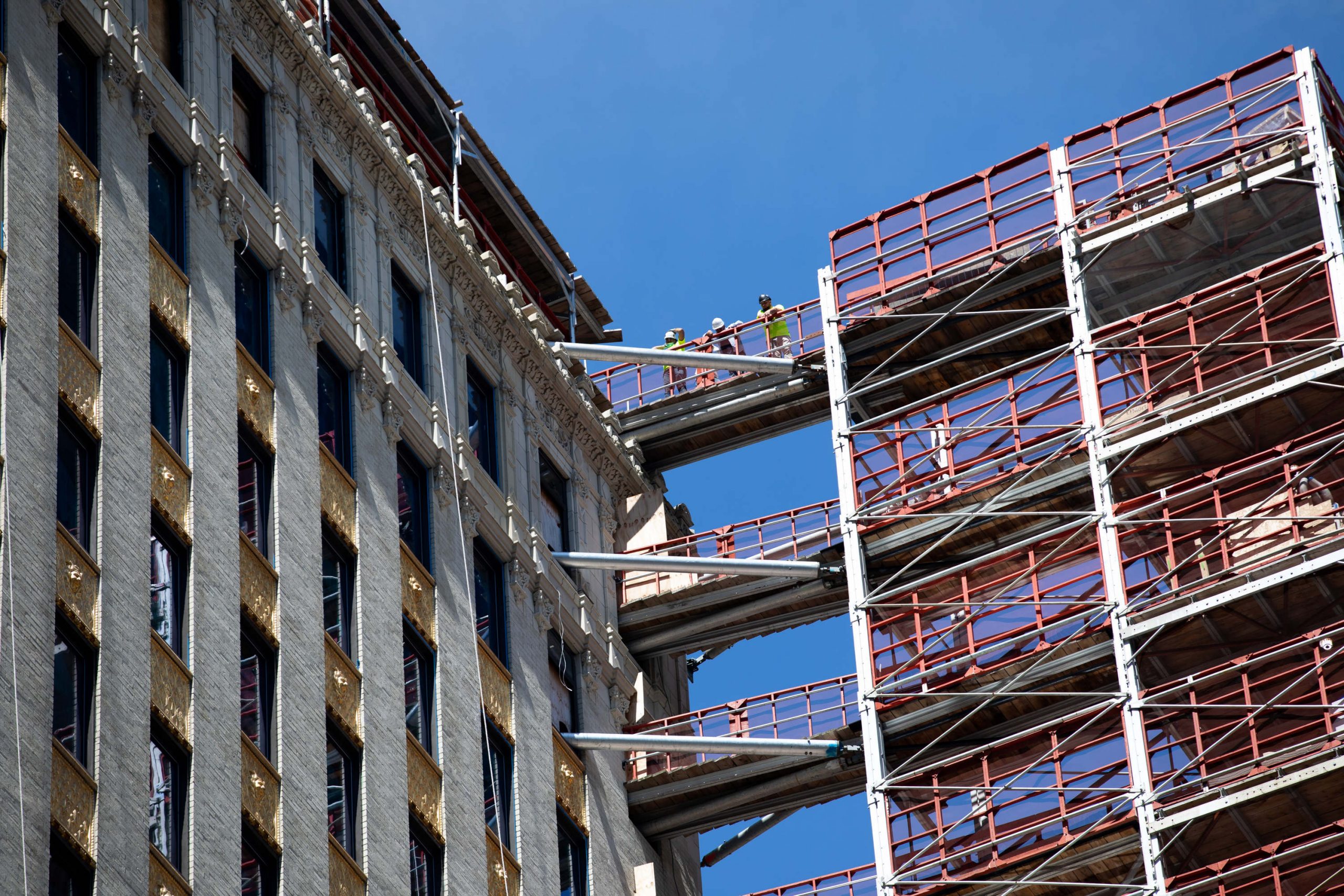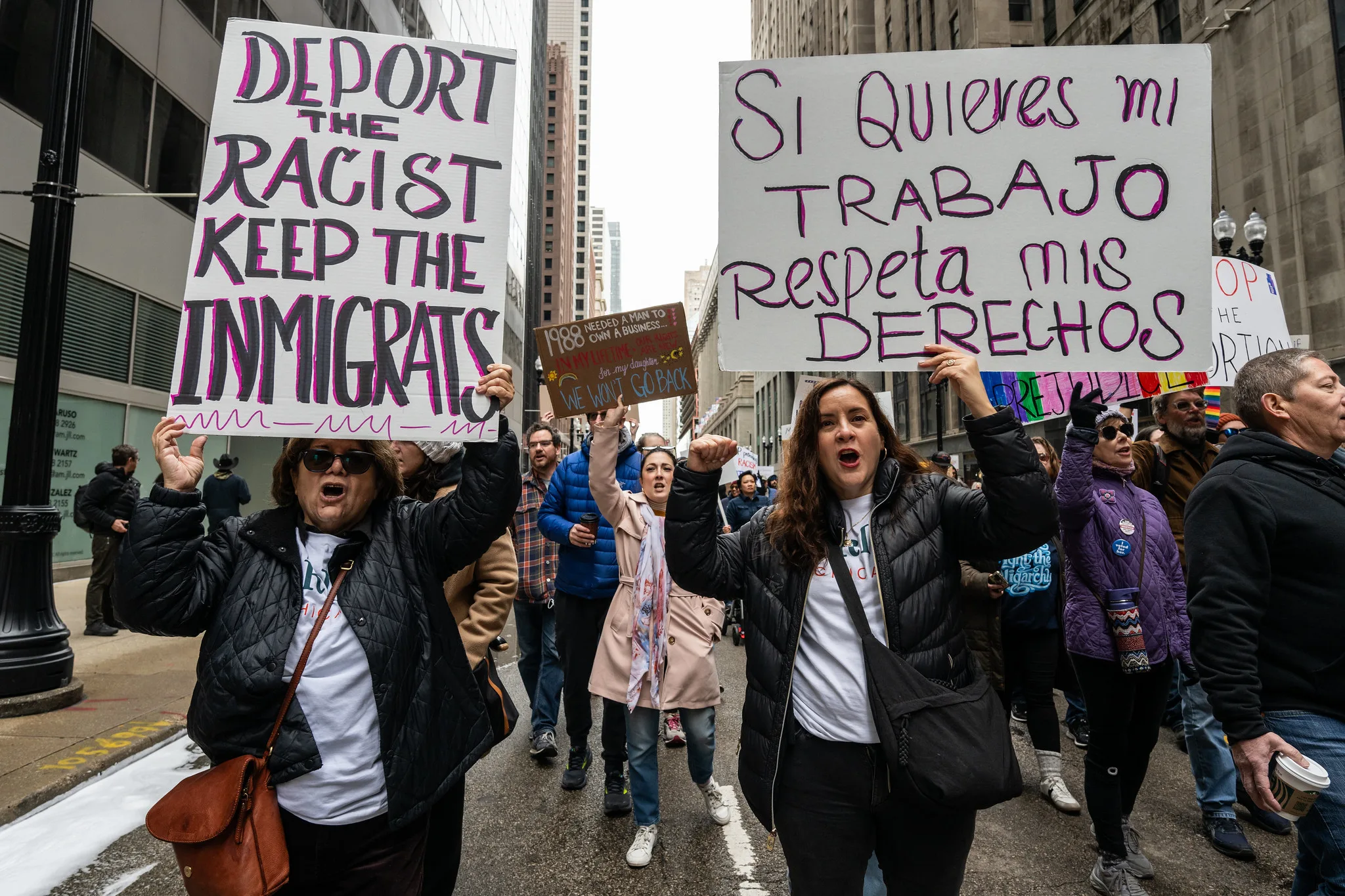Last November, Modesto showed up for his immigration court hearing at Federal Plaza only to see that the building was shuttered. He had received no notice by mail that his hearing had been postponed, or that the court was closed.
To this day, the government has still not sent him an official notice of a new date for his asylum case.
“I received absolutely nothing,” Modesto, a citizen of Ecuador who asked to be identified by only his middle name for security reasons, said in Spanish. “If they cancel and they don’t tell you, it’s really frustrating. You just don’t know what to do, where to go, or what to think.”
New Yorkers are preparing for the immigration courts reopening at Broadway and Federal Plaza on July 6. Modesto is one of an estimated tens of thousands of people who had their cases rescheduled while the non detained immigration court was shutdown due to the pandemic. Advocates are worried that rescheduling notices are not reaching immigrants with open cases which creates the potential for mass in absentia deportation orders.
Also read: Immigration Lawyers Wait for Biden Administration to Fulfill Promises
“Absolutely people are going to miss their hearings,” said Jodi Ziesemer, the director of the Immigrant Protection Unit at the New York Legal Assistance Group. “The consequence for someone not appearing at their hearing is deportation,” she added. “It’s a very serious consequence, and it’s very hard to undo that once it’s happened.”
“Noncitizens with scheduled hearings from July 6 through July 30 (or representatives who have entered an appearance with the court for a case on those days) who did not receive a notice of reset hearing by June 22 should expect scheduled hearings to proceed as scheduled,” EOIR Regional Public Information Officer Jonathan Martin said in an email.
Ziesemer estimates that of the 150,000 plus pending cases in New York immigration courts, two-thirds of these were affected in some way by the pandemic shutdown. The number of asylum decisions in New York City immigration court has dropped dramatically since the beginning of the pandemic, according to the Transactional Research Access Clearinghouse at Syracuse University.
In February of 2020, 1,090 asylum cases were decided, TRAC data shows. From April of 2020 through May of 2021, the month with the highest number of asylum decisions was June of last year, with just 64 asylum cases resolved.
Throughout the pandemic, advocates said that the immigration courts have been inconsistent in notifying asylum applicants and others about rescheduled hearings — and in some cases provided no notice that dates had changed, as was the case with Modesto, an Ecuadorian national who has had a pending asylum case for about seven years.
Modesto learned that his new court date would not take place until later this year because Ziesemer, who represents him, accessed an online portal available only to lawyers. There is a public website available for respondents to look up the next court date if they have the docket number, Ziesemer said, but that portal does not always reflect up to date information. However, many immigrants in New York’s non-detained courts do not have a lawyer.
When asked about the claim of unreliable notices, Martin of EOIR said that the agency addresses all specific case issues with individual parties “as they arise,” but is “unable to comment on hypothetical concerns,” and does not publicly discuss case-specific issues that are not part of public record.
About 90 percent of immigrants with asylum cases in New York immigration courts through May of 2021 had legal representation, according to TRAC.
Also read: Backlogged Immigration Courts Prepare for More Asylum Seekers
There is a pervasive sense of unease as immigrants and their attorneys wonder whether some of the changes reflected on-line truly reflect the immigration court calendar.
“I still have a feeling of uncertainty about the court date,” Modesto said. “I’m stuck because I haven’t gotten an official letter…You don’t know what to think or what to say, you’re just waiting for the moment that they tell you something.”
Immigration judges in New York will work with petitioners and attorneys to keep everyone abreast of court date changes with immigration courts reopening, said Amiena Khan, the president of the National Association of Immigration Judges. The judges will also collaborate with EOIR to ensure “that timely and adequate notices are provided,” she said.
“The immigration judges are working collectively and collaboratively with our courts to ensure that our cases are timely rescheduled, and that timely notices are afforded to the parties, and that’s an absolute fact,” she said.
Many of the immigration court system’s main announcements, including those about court closures and Covid exposures, are released on EOIR’s Twitter page. But some advocates like Ziesemer say that even with following the social media pages, the communication on behalf of EOIR about immigration courts reopening has been insufficient.
During the pandemic, Judge Khan said, the majority of non-detained hearings were rescheduled. Now, the immigration court backlog in New York State is the third largest in the country, after California and Texas, with more than 150,000 deportation cases pending, which is 11 percent of the total of the national backlog of 1.3 million, according to TRAC.
On top of that, the system is lagging far behind. In fiscal year 2021, immigration judges in New York state have completed 598 asylum cases, down from 8,924 cases the previous year, TRAC data shows.
“Immigration judges are going to have to triage more than they’ve ever triaged before,” said Susanna Saul, the managing attorney at Her Justice, a group that helps women in the New York area with pro-bono legal needs. “Which means less time for nuanced factual and legal decisions.”
The court system is clearly overloaded — and now must deal with notifying all respondents of their new court dates and venues with immigration courts reopening their doors.
Also read: Disorder in the Immigration Courts
The pandemic has led to “tremendous social and economic problems,” including extreme housing insecurity, which has in particular affected New York City’s immigrant and communities of color, Ziesemer wrote in a letter to the Acting Assistant Chief Immigration Judge at Federal Plaza. Because of this, many immigrants reside at a different address than they did at the beginning of the pandemic, complicating the process even further.
For individuals who are representing themselves — getting access to the information about rescheduled court dates has an added layer of difficulty.
Maria, who preferred to go by a pseudonym, an asylum-seeker from Honduras, originally had a court date scheduled for December of 2020, and is representing herself. Since she did not receive any communication notifying her that the courts were closed, she — like Modesto — went to the courthouse at 26 Federal Plaza to attend her scheduled hearing. And she, too, found that the building was shut down. “They didn’t send me absolutely anything, that’s why I showed up,” she said in Spanish.
Before arriving at immigration court that day, she had been continually calling a court-provided phone line, and was assured through that system that her court date was still slated for December, she said.
What followed after December were months of uneasiness as she wondered whether she was missing her court date and would be sent back home to Honduras, separated from her three children who reside in the New York area. Following the December court visit, Maria said she has called the government provided phone number at least twice a week to check on the status of her case — without any date being defined.
She didn’t have a lawyer to help her access the online portal, she said, and had no other way of contacting the court. Finally, about a month and a half ago, she received a letter in the mail telling her that she had a court date for the summer of 2022. But the time she spent waiting in limbo was painful, she said.
“I was so scared of missing my appointment because at the end of the day, if you miss it you basically have a deportation order,” Maria said. “I don’t have legal representation, only God is with me.”














